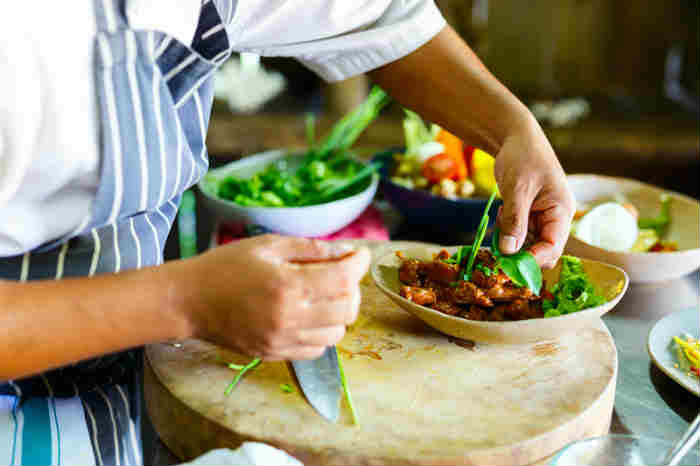The word “food” can mean many different things to a person, depending on their relationship with it. For some, food is comforting. For others, food is stressful. Similarly, the art of cooking food can be positive or negative experiences for someone, depending on who you ask. Cooking and preparing food are tasks that requires a lot of thought, care, and attention to ensure that the end product is edible and tasty. That’s why some mental health professionals have begun to explore the benefits of teaching people how to use the art of cooking and preparing food as a mental health coping skill; they do this through a type of treatment that people are calling “culinary therapy”.

Culinary therapy is said to be an active treatment process that involves using “individualized recipes to address specific issues”. Culinary therapists will use the beginning part of a session discussing all of the things that the person is dealing with to determine a personal recipe plan to help them work through their symptoms of distress. After this, the therapist will help the person think through metaphors about the process of cooking that relates to these struggles and will design a sequence of events that they will tackle in the cooking process to overcome some of their negative feelings. When cooking begins, therapists will help cooks identify behaviors that are coming up during the cooking process that they may experience in their every day lives: struggles with patience, frustration tolerance, impulsive behaviors, not focusing on details, and many other things can come up while someone is cooking. A therapist can help them notice these patterns and redirect them to thought processes and attitudes that may better serve them.
In addition to the more direct therapeutic concepts of culinary therapy, it has a lot of indirect ones as well. Cooking is a way for someone to work toward completion of work and can experience the success both visually and by enjoying the end product when it is eaten. Cooking encourages creativity and personal choice. It can also be a bonding experience when the cooking load is shared or can be used to show that the cook cares for those around them by providing for them. The act of cooking requires focus, concentration, and attention to detail, which are the key aspects of mindfulness therapy. Helping a person use mindfulness and work toward a goal where there is instant gratification in the form of delicious food is a great way to help a person work through stress and difficulties they are experiencing.
This is a relatively new field of therapy, but like many other active forms of therapeutic treatment, those who have participated seem to feel as if it is a way to get their negative feelings out and to learn new skills to help them de-stress. This technique is used in mental health settings that require residential treatment or in community mental health where the goal is to educate those participating in both the nutritional benefits of learning how to cook as well as the mental health benefits when used as a coping skill. Little research has been completed on its ability to treat and heal people’s mental health symptoms on its own but seems to be a wonderful addition to other treatments. It could also be a great experience for people who may not be experiencing severe mental health symptoms and looking for a fun, inspiring way to de-stress!

